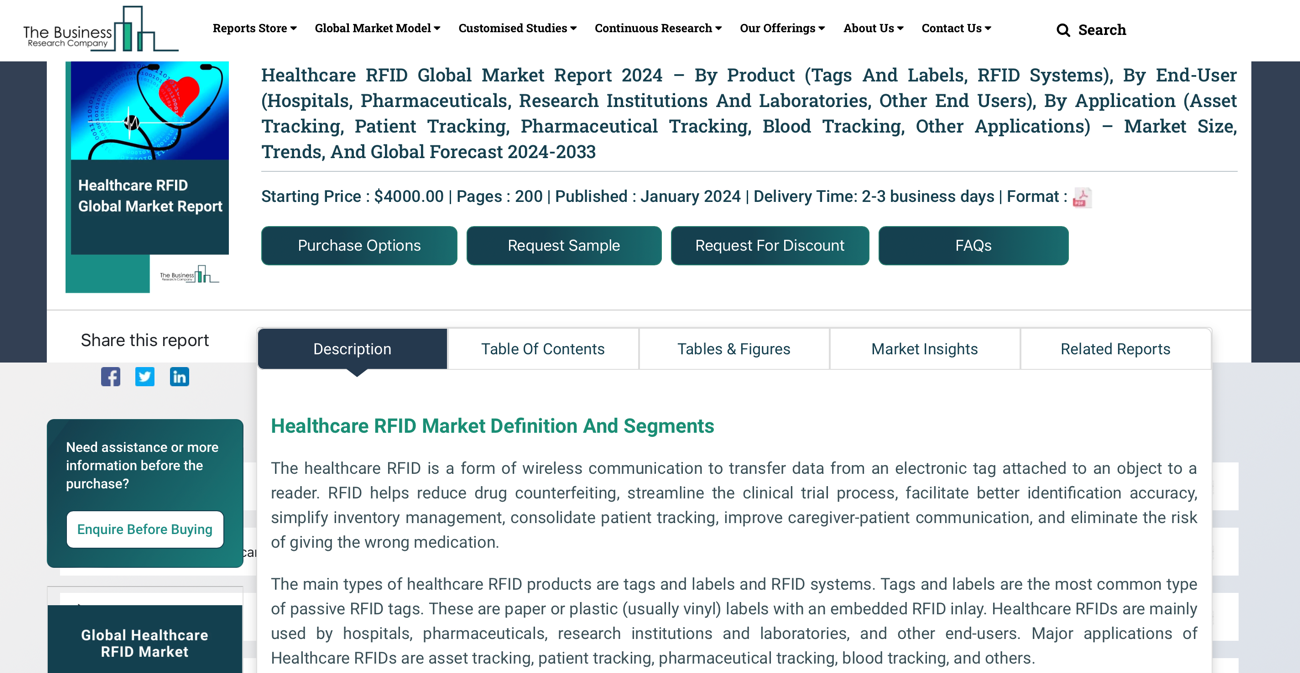
The healthcare RFID market is a vital sector leveraging wireless communication to transfer data efficiently from electronic tags to readers. It plays a crucial role in enhancing various aspects of healthcare, including reducing drug counterfeiting, streamlining clinical trials, improving identification accuracy, and simplifying inventory management.
The main products in the healthcare RFID market consist of tags, labels, and RFID systems, with tags and labels being the most prevalent forms, commonly used for asset and patient tracking. These technologies find widespread application across hospitals, pharmaceutical companies, research institutions, and laboratories. The market is segmented based on product types, end-users, and applications, showcasing its versatility and adaptability to diverse healthcare needs.
One of the driving forces behind the growth of the healthcare RFID market is the increasingly stringent regulations in the pharmaceutical sector. Governments and regulatory bodies worldwide are implementing measures to combat counterfeiting issues and enhance patient safety. For instance, recent regulations like the Health Data Use Act in Germany are fueling market growth by promoting the use of RFID technology to track patient health data securely.
Furthermore, the market is witnessing rapid expansion due to factors such as the aging population and technological advancements. The elderly population’s growing healthcare needs are driving the demand for RFID solutions, particularly in user activity monitoring and caregiver support. Technological innovations, including IoT integration, are revolutionizing data management in the healthcare RFID sector, enabling better analytics and storage capabilities.
Key companies driving innovation in the healthcare RFID market include Impinj Inc., Honeywell International Inc., and GAO RFID Inc. These firms are focused on developing new solutions to address evolving healthcare challenges, such as inventory management and product authentication. Overall, the healthcare RFID market presents significant growth opportunities, driven by regulatory developments, demographic shifts, and technological advancements.
